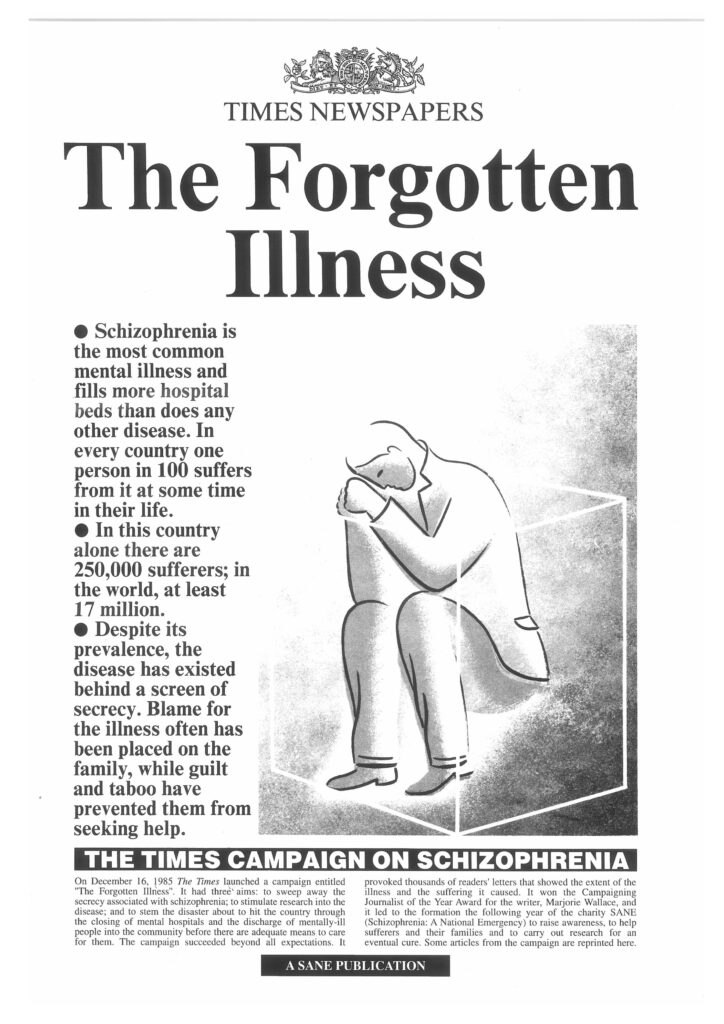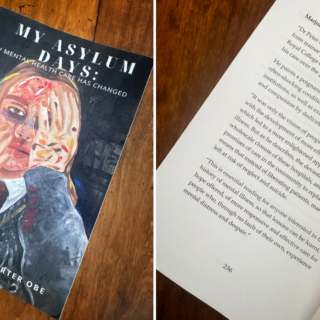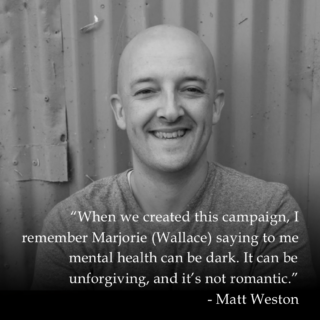Schizophrenia remains the forgotten mental illness
Thirty-five years ago we exposed the suffering and despair of people living with schizophrenia on the fringes of society. There are still far too many people with severe and enduring conditions, such as schizophrenia, who are unable to access treatment when they need it.
They may not know who to contact when in crisis, or may be unable to access a hospital bed. They may have no clear care plan, which can undermine what treatment they are able to receive.
On top of this, their families and those caring for them often feel excluded from decisions about their treatment, and are left to shoulder the day-to-day burden on their own.
Around one in a hundred people will have a diagnosis of schizophrenia. Our own research found that as many as one in nine people with schizophrenia or psychosis received no support following their diagnosis. And 61 per cent of family members and carers said they felt unsupported by healthcare professionals.
Click image to enlarge
Struggling in silence
There has been a tremendous change in awareness of mental health, but it has not been matched by the availability of frontline care.
The experience of someone with a diagnosis of schizophrenia can be very different. Drug treatments aim towards helping a person manage their condition, and relapses can be more severe and long-lasting than they might be for someone with mild to moderate depression.
This means that holding down relationships, finding work, and living independently can by much more of a challenge. And it can be much more difficult to advocate to improve public understanding and demand better mental health services. All too often people with such a diagnosis, and their families, struggle in silence.
Awareness and acceptance
Over the years, all too often the most prominent coverage of schizophrenia in the media has been on those rare cases when someone with a diagnosis of schizophrenia has committed a terrible crime when deeply psychotic.This has distorted public understanding and acceptance of the condition.
Some of the measures in the NHS Long Term Plan addressing mental health provision are welcome, but there is much still to be done particularly in the light of the ongoing Covid-19 pandemic.
We have lost almost half the psychiatric beds in England since 2000. Until we see the restoration of local beds for those in crisis or with severe and relapsing mental illness, people will continue to be discharged early, refused admission or treated out-of-area, and avoidable tragedies and loss of life will continue.
Schizophrenia is a serious illness and very difficult to endure. But it’s no one’s fault and there is no shame or blame.
With more awareness and acceptance, improved treatments and research there is hope life can improve for patients, their families and those who struggle unseen and unheard.






